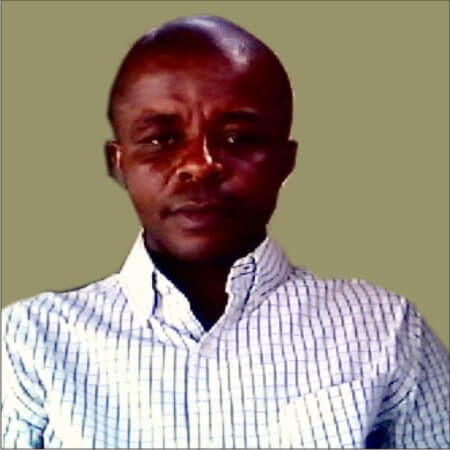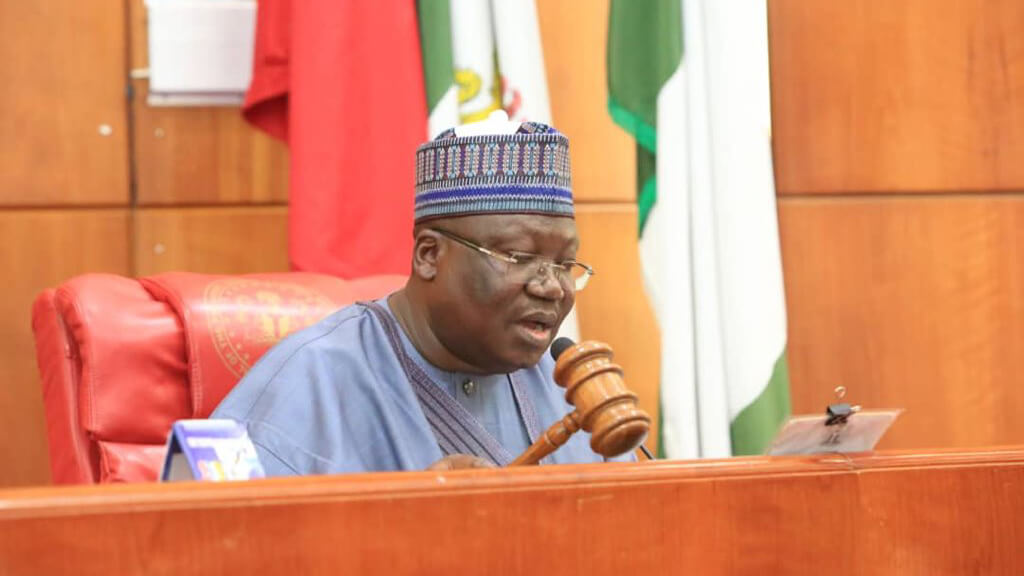The 9th Assembly’s Baggage of Controversy

By Jerome-Mario Utomi
In Nigeria, the Senate President is the head of the National Assembly, and assisted by the Deputy Senate President. The Senate President and his Deputy also work with the Principal Officers in the house including the Majority Leader, Deputy Majority Leader, Minority Leader, Deputy Minority Leader, Chief Whip, Deputy Chief Whip, Minority Whip and Deputy Minority Whip. Same is applicable to the House of Representatives which is headed by the Speaker and assisted by the Deputy with other officers similar to those mentioned above.
Fundamentally, everyone in the National Assembly is, or ought to be traditionally interested in the day-to-day existence of the average people in the country and honestly work hard to improve their lives by offering selfless service in the offices they occupy.
But contrary to this expectation, a peep at the 9th Assembly in the past one year will reveal that although the present 9th Assembly, going by the profile of members, is arguably filled with the best trained and most highly skilled in the history of NASS in Nigeria. But asymmetrical personal interest has not allowed them to do the job of lawmaking that will enhance the life chances of Nigerians.
Indeed, one event that first raised the red flag and did so well to reveal that the present Assembly may not be allergic to controversy or scandal was the out-of-the-ordinary political interplays, and considerable uncertainties that lasted for weeks created by new and returning members of the 9th Assembly angling for principal positions in both the senate and House of Representatives.
What, however, made that situation a very curious one was that an exercise like election of principal officers which constitutionally supposed to be an internal affair within the Assembly, suddenly against all known logic got characterized by national intrigue with the ruling party, The All Progressive Congress (APC) taking time to underline the advantages, and otherwise of having a particular lawmaker in a particular position.
Without any lesson learned, the exposed systematised personal interest in the 9th Assembly was amplified by the controversy that characterized the lawmakers first official assignment—the screening of the ministerial nominees that was silent on portfolios forwarded to the house by President Muhammadu Buhari.
Aside from the non-attachment of portfolios rendering the senators clueless in generating relevant strategic questions for the nominees, what really caused concern among Nigerians with critical interest was the senators adoption of the doctrine of ‘take a bow and go’ for the majority of the nominees that were once senators. Without minding whether they (ex-senators) are familiar with the magnitude and urgency of our problem as a nation or laced with the requisite knowledge that the ministerial positions demand to help the nation come out of its present predicament
Before the apprehension raised by the Lawan led senate not allowing Nigerians know what the Ex- Senators on the list have done in the past, currently doing, or will do when they become ministers, could settle, that of the planned purchase of the controversial SUV’s cars was up.
While Nigerians were still waiting for the commencement of governance, the leadership of the National Assembly before embarking on its eight-week recess, which ended on September 24, 2019, begun moves to procure operational vehicles for the lawmakers that make up its dual legislative chambers.
Essentially, while there was no question that high-offices such as the National Assembly need operational vehicle to facilitate their responsibilities, the stunning aspect of this episode going by reports is with the estimated current price of the chosen vehicle now N50 million. And the Senate needed about N5.550 billion to get enough quantity for its members. What is in one considerably different is the question; how can a nation spend over N5billion on such project in a country with slow economic but high population growth? Where excruciating poverty and starvation daily drives more people into the ranks of beggars? And were so many children are presently out of school?
As if Nigerians were never tired of receiving frightening packages from the 9th Assembly, at about the same time the world leaders were standing up with sets of values that encourage listening and responding constructively to views expressed by citizens, giving others the benefits of the doubt, providing support and recognizing the interests and achievements of its citizens, the Senate came out with two Bills that critical minds and of course the global community qualified as obnoxious-the Internet Falsehood and Manipulations Bill, and the hate speech bill.
At the most basic level, while the Internet Falsehood and Manipulations Bill, 2019, sponsored by Senator Mohammed Sani Musa,(APC Niger East), among other provisions, seeks to curtail the spread of fake information. And seeks a three-year jail term for anyone involved in what it calls the abuse of social media or an option of fine of N150, 000 or both. It also proposed a fine of N10 million for media houses involved in peddling falsehood or misleading the public.
The hate speech bill on its part, proposed that any person found guilty of any form of hate speech that results in the death of another person shall die by hanging upon conviction. This is in addition to its call for the establishment of an ‘Independent National Commission for Hate Speeches’, which shall enforce hate speech laws across the country.
The above defect is by no means unique to the Senate. In fact, if what is happening in the senate is considered by Nigerians as a challenge, that of the House of Representative is a crisis.
Take as an illustration, a glance at the history of attempts seeking regulation of non-profitable organizations (NPOs) in Nigeria will reveal that no bill has ever received the level of knocks like the 9th Assembly planned but now suspended re-introduction of the NGO Bill formerly sponsored by late Honorable Umar Buba Jibril of the outgone 8th Assembly. The reasons for such knocks were built on the fact that if passed, it contains far-reaching, restrictive provisions than its counterparts.
But one point they(House) failed to remember is that Non-Profitable Organizations are not just another platform for disseminating the truth or falsehood, information, foodstuff and other relief materials that can be controlled at will. Rather, it is a platform for pursuing the truth, and the decentralized creation and distribution of ideas; in the same way, that government is a decentralized body for the promotion and protection of the people’s life chances. It is a platform, in other words, for development that the government must partner with instead of vilification.
Looking at commentary, what also made the Bill a very contoversial one lies in its quest for a regulatory commission established which shall facilitate and coordinate the work of all national and international civil society organisations and will assist in checking any likelihood of any civil society organisation being illegally sponsored against the interest of Nigeria.
Weeks after the suspension of the Bill due to public outcry, the House in a related move declined the opportunity to promote local content- an expression that is daily preached within the government circle without compliance. As the house refused to patronize the locally assembled vehicles by Innoson Group, said to have been recommended for them; and in its place, opt for the 2020 edition of Toyota Camry which will not only double the price of the initially recommended but, will cost a whooping N5 Billion to purchase 400 of the Toyota Camry model needed by the house.
Essentially, aside from the rejection of Innoson brand of SUV’s initially recommended for members, and in its place, went for 2020 edition of Toyota Camry, that will gulp about N5billion of tax payers money, what, however, made the development newsy is that the house going by report has before now been at the forefront promoting the local content laws in the country.
Of course, one strategic implication of the above is that it explains why what is today said at the floor of the national assembly hardly matters that much more to the people.
In the same vein, the House few weeks after, through Honourable Odebumi Olusegun, of Ogo-Oluwa/Surulere federal constituency (APC, Oyo), pushed for the passage of a bill tagged; “Bill for an Act to Alter Section 308 of the Constitution of the Federal Republic of Nigeria, 1999(as amended), which provides that: “no civil or criminal proceedings shall be instituted or continued against the President, Vice President, Governors and Deputy Governors during their period of office.” And have same provision extended to accommodate/cover Presiding Officers of Legislative officers during their period of office.”
This, and many other worrying developments from the current 9th Assembly in the last one year is in my views not the best way to legislate for the poor.
Jerome-Mario Utomi([email protected]), is a Lagos-Based Media Consultant.



